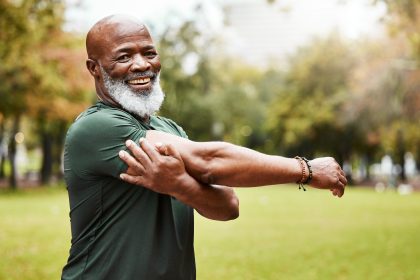The intersection of artificial intelligence and mental wellness has created a revolutionary approach to combating depression, anxiety, and stress through personalized exercise programs. These sophisticated AI trainers go beyond traditional fitness apps by analyzing mood patterns, stress levels, and psychological responses to create workouts specifically designed to improve mental health outcomes.
Unlike conventional fitness applications that focus solely on physical metrics like calories burned or muscles targeted, these innovative AI systems prioritize psychological well-being by selecting exercises scientifically proven to release mood-boosting neurotransmitters, reduce cortisol levels, and promote emotional regulation. The technology represents a significant advancement in accessible mental health support, offering personalized therapeutic exercise interventions without the cost or scheduling constraints of traditional therapy.
Mindful movement AI adapts to emotional states
The first category of AI trainers specializes in mindful movement practices that respond dynamically to user emotional states. These systems utilize advanced algorithms to analyze self-reported mood data, sleep patterns, heart rate variability, and activity levels to create personalized yoga, tai chi, and meditation-movement sequences.
The AI continuously learns from user feedback about how different exercises affect mood, energy levels, and stress responses. When users report feeling anxious, the system automatically generates calming flow sequences emphasizing deep breathing and gentle stretches. During periods of depression or low energy, the AI prescribes more energizing movements designed to activate the nervous system and stimulate endorphin production.
These platforms incorporate biometric monitoring through smartphone sensors and wearable devices to detect physiological stress markers. The AI adjusts workout intensity, duration, and style based on real-time data about heart rate patterns, breathing irregularities, and movement quality that indicate emotional distress or mental fatigue.
The technology excels at creating progressive programs that gradually build mental resilience through incremental challenges. Users begin with simple breathing exercises and gentle movements, advancing to more complex sequences as their emotional regulation and stress tolerance improve. The AI tracks progress not just in physical flexibility or strength, but in measurable improvements to mood stability and stress recovery time.
Cognitive behavioral exercise AI transforms negative thought patterns
The second innovation combines artificial intelligence with cognitive behavioral therapy principles to create exercise programs that actively counter negative thinking patterns. These AI trainers recognize the powerful connection between physical movement and cognitive restructuring, designing workouts that interrupt rumination cycles and promote positive mental shifts.
The AI analyzes user journal entries, mood tracking data, and behavioral patterns to identify specific triggers for anxiety, depression, or negative thinking. It then creates targeted exercise interventions timed to coincide with these challenging periods. For individuals who experience afternoon energy crashes accompanied by self-critical thoughts, the AI might prescribe brief, high-intensity movement bursts designed to reset both energy and mindset.
These systems incorporate motivational psychology research to design exercise experiences that build self-efficacy and challenge negative self-perceptions. The AI creates achievable micro-goals within workouts, ensuring users experience frequent success that counters feelings of inadequacy or hopelessness common in depression.
The technology tracks language patterns in user feedback and automatically adjusts motivational messaging to counter specific cognitive distortions. Users who engage in all-or-nothing thinking receive workouts emphasizing progress over perfection, while those prone to catastrophizing get exercises designed to build confidence in their physical capabilities.
Neuroplasticity-focused AI optimizes brain chemistry
The third category leverages cutting-edge neuroscience research to create AI trainers that specifically target neuroplasticity and neurotransmitter optimization. These sophisticated systems understand that different types of exercise affect brain chemistry in distinct ways, designing personalized programs to address individual neurochemical imbalances.
The AI analyzes patterns in mood, sleep, appetite, and energy to infer potential neurotransmitter deficiencies. Users showing signs of low dopamine receive workouts emphasizing achievement and progression, with exercises that provide frequent reward feedback. Those with apparent serotonin deficits get programs rich in rhythmic, repetitive movements known to boost this mood-regulating neurotransmitter.
These platforms incorporate interval training principles specifically designed for mental health benefits. The AI creates varied workout intensities that stimulate brain-derived neurotrophic factor production, promoting new neural connections that support emotional resilience and cognitive flexibility. High-intensity intervals boost endorphin production for immediate mood elevation, while moderate steady-state activities promote long-term serotonin balance.
The technology continuously refines its understanding of each user’s unique neurochemical responses to different exercise types. Some individuals respond better to strength training for confidence building, while others benefit more from cardiovascular exercise for anxiety reduction. The AI learns these individual patterns and optimizes workout prescriptions accordingly.
Social connection AI combats isolation through virtual community
The fourth innovation addresses the social component of mental health by creating AI trainers that facilitate meaningful connections while exercising. These systems recognize that isolation significantly contributes to depression and anxiety, designing workout experiences that promote social bonding and community support.
The AI matches users with similar mental health challenges, fitness levels, and schedule availability for virtual workout partnerships. It creates shared exercise experiences that require cooperation and communication, fostering relationships that extend beyond fitness into emotional support networks. The technology facilitates accountability partnerships where users check in on each other’s mental health progress.
These platforms incorporate group psychology principles to design virtual fitness communities that promote belonging and mutual encouragement. The AI moderates online interactions to maintain supportive environments while identifying users who might benefit from additional mental health resources or professional intervention.
The technology creates opportunities for users to share their mental health journeys through movement, normalizing struggles with depression and anxiety while celebrating progress and resilience. The AI facilitates storytelling through movement, where users create and share exercise sequences that represent their emotional experiences.
Trauma-informed AI provides safe movement spaces
The fifth category specializes in trauma-informed exercise programming that recognizes the complex relationship between physical movement and psychological safety. These AI trainers understand that traditional fitness approaches can trigger trauma responses in some individuals, creating carefully designed alternatives that promote healing rather than re-traumatization.
The AI incorporates trauma therapy principles into exercise design, emphasizing user choice, body awareness, and emotional regulation. Workouts always include multiple modification options, allowing users to maintain complete control over their physical experience. The technology teaches users to recognize their window of tolerance and adjust exercise intensity to stay within safe psychological boundaries.
These systems provide psychoeducation about trauma responses during exercise, helping users understand why certain movements might feel challenging emotionally. The AI offers grounding techniques and breathing exercises integrated seamlessly into workout routines, ensuring users have immediate coping tools when trauma responses arise.
The technology tracks physiological markers that might indicate trauma activation, such as sudden heart rate spikes, irregular breathing patterns, or movement restriction. When these patterns emerge, the AI automatically suggests modifications or alternative exercises that maintain physical benefits while prioritizing psychological safety.
Seasonal and circadian AI addresses biological rhythms
The sixth innovation focuses on the powerful relationship between biological rhythms and mental health, creating AI trainers that adjust exercise prescriptions based on seasonal patterns, circadian rhythms, and individual chronotype preferences. These systems recognize that mental health symptoms often fluctuate with natural cycles, requiring adaptive exercise interventions.
The AI tracks seasonal mood patterns and automatically adjusts workout programming to counter seasonal affective symptoms. During darker months, the technology prescribes more energizing morning workouts designed to regulate circadian rhythms and boost vitamin D absorption through recommended outdoor activities when possible.
These platforms incorporate chronobiology research to optimize workout timing for individual circadian preferences. Morning people receive energizing dawn workouts that support their natural rhythm, while evening types get calming nighttime movement sequences that prepare them for restorative sleep without disrupting their preferred schedule.
The technology analyzes sleep quality data to determine how exercise timing affects mental health outcomes for each user. Some individuals benefit from morning workouts for depression management, while others find evening exercise more effective for anxiety reduction. The AI learns these individual patterns and optimizes scheduling recommendations.
Personalization creates lasting mental health transformation
The true power of these AI trainers lies in their sophisticated personalization capabilities that create truly individualized mental health interventions through exercise. Unlike one-size-fits-all fitness programs, these systems continuously adapt to changing mental health needs, life circumstances, and personal preferences.
The AI considers factors such as medication effects, therapy progress, major life events, and changing stress levels when designing workout programs. Users experiencing medication adjustments receive modified exercise prescriptions that account for potential side effects or energy changes. Those going through major life transitions get programs emphasizing stability and emotional regulation.
These platforms integrate with mental health tracking apps, electronic health records where permitted, and wearable devices to create comprehensive pictures of user well-being. The AI identifies correlations between exercise participation and mood improvements, sleep quality, stress levels, and overall life satisfaction.
The technology provides detailed progress reports that highlight connections between exercise consistency and mental health improvements. Users can see objective data about how their workout participation correlates with better mood days, improved sleep, and increased resilience during stressful periods.
Future developments promise even greater mental health support
The field of AI-powered mental health fitness continues evolving rapidly, with emerging technologies promising even more sophisticated and effective interventions. Advanced biometric monitoring will allow AI trainers to detect subtle physiological changes that predict mood episodes before users consciously recognize them.
Virtual and augmented reality integration will create immersive exercise experiences that transport users to calming natural environments or energizing social spaces, maximizing the psychological benefits of movement. The AI will create personalized virtual worlds that adapt to individual preferences and therapeutic needs.
Machine learning algorithms will become increasingly sophisticated at predicting which exercise interventions will be most effective for specific mental health conditions and individual personality types. The technology will eventually provide precision medicine approaches to exercise prescription for mental health.
These AI trainers represent a revolutionary approach to mental health support that makes therapeutic exercise interventions accessible, affordable, and highly personalized. By harnessing the power of artificial intelligence to understand individual mental health patterns and exercise responses, these platforms offer hope for millions struggling with depression, anxiety, and other psychological challenges who can now access scientifically-backed mental health support through their smartphones and computers.


















